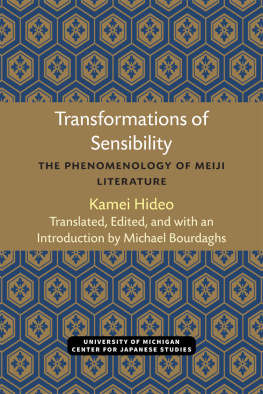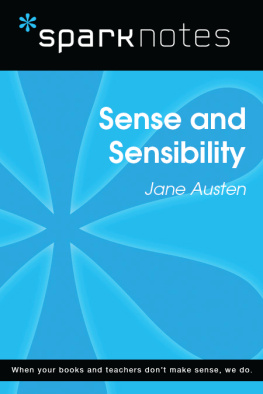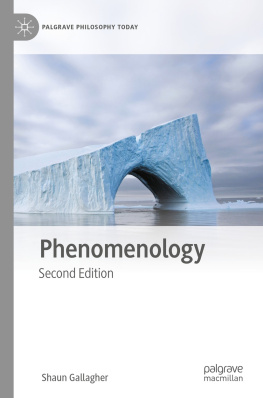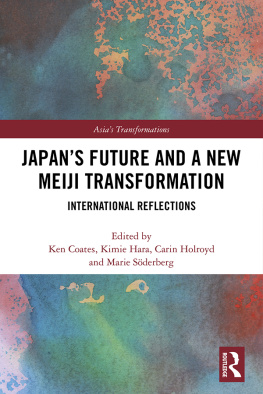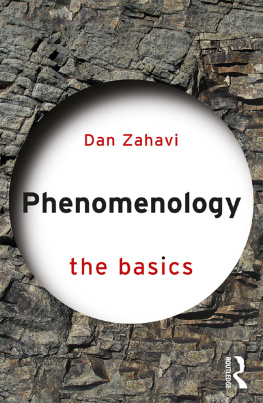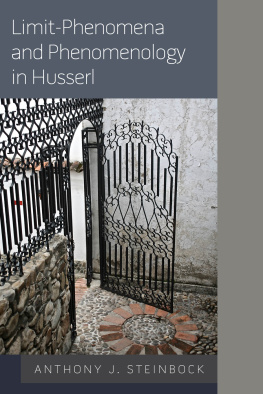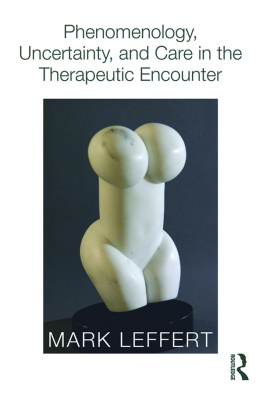Kamei Hideo - Transformations of Sensibility: The Phenomenology of Meiji Literature
Here you can read online Kamei Hideo - Transformations of Sensibility: The Phenomenology of Meiji Literature full text of the book (entire story) in english for free. Download pdf and epub, get meaning, cover and reviews about this ebook. year: 2020, publisher: University of Michigan Center for Japanese Studies, genre: Religion. Description of the work, (preface) as well as reviews are available. Best literature library LitArk.com created for fans of good reading and offers a wide selection of genres:
Romance novel
Science fiction
Adventure
Detective
Science
History
Home and family
Prose
Art
Politics
Computer
Non-fiction
Religion
Business
Children
Humor
Choose a favorite category and find really read worthwhile books. Enjoy immersion in the world of imagination, feel the emotions of the characters or learn something new for yourself, make an fascinating discovery.
- Book:Transformations of Sensibility: The Phenomenology of Meiji Literature
- Author:
- Publisher:University of Michigan Center for Japanese Studies
- Genre:
- Year:2020
- Rating:5 / 5
- Favourites:Add to favourites
- Your mark:
- 100
- 1
- 2
- 3
- 4
- 5
Transformations of Sensibility: The Phenomenology of Meiji Literature: summary, description and annotation
We offer to read an annotation, description, summary or preface (depends on what the author of the book "Transformations of Sensibility: The Phenomenology of Meiji Literature" wrote himself). If you haven't found the necessary information about the book — write in the comments, we will try to find it.
Kamei Hideo: author's other books
Who wrote Transformations of Sensibility: The Phenomenology of Meiji Literature? Find out the surname, the name of the author of the book and a list of all author's works by series.
Transformations of Sensibility: The Phenomenology of Meiji Literature — read online for free the complete book (whole text) full work
Below is the text of the book, divided by pages. System saving the place of the last page read, allows you to conveniently read the book "Transformations of Sensibility: The Phenomenology of Meiji Literature" online for free, without having to search again every time where you left off. Put a bookmark, and you can go to the page where you finished reading at any time.
Font size:
Interval:
Bookmark:

Transformations of Sensibility
MICHIGAN MONOGRAPH SERIES IN JAPANESE STUDIES
NUMBER 40
CENTER FOR JAPANESE STUDIES
THE UNIVERSITY OF MICHIGAN
Transformations of Sensibility
The Phenomenology of Meiji Literature
KAMEI HIDEO
Translation Edited and with an Introduction by Michael Bourdaghs
Center for Japanese Studies
The University of Michigan
Ann Arbor 2002
Open access edition funded by the National Endowment for the Humanities/Andrew W. Mellon Foundation Humanities Open Book Program.
2002 The Regents of the University of Michigan
Published by the Center for Japanese Studies, The University of Michigan, 202 S. Thayer St., Ann Arbor, MI 48104-1608
Library of Congress Cataloging in Publication Data
Kamei, Hideo, 1937
[Kansei no henkaku. English]
Transformations of sensibility : the phenomenology of Meiji literature / Kamei Hideo ; translation edited and with an introduction by Michael Bourdaghs.
p. cm.(Michigan monograph series in Japanese studies ; no. 40) Includes indexes.
ISBN 1-929280-12-2 (cloth : alk. paper)
1. Japanese literature1868History and criticism. 2. Japanese literatureEdo period, 1600-1868History and criticism. I. Bourdaghs, Michael, 1961 II. Title. III. Series.
PL726.55 .K2613 2002
895.6090042dc21
2002072878
This book was set in Times New Roman.
This publication meets the ANSI/NISO Standards for Permanence of Paper for Publications and Documents in Libraries and Archives (Z39.481992).
Published in the United States of America
ISBN 978-1-929280-12-4 (hardcover)
ISBN 978-0-472-03804-6 (paper)
ISBN 978-0-472-12747-4 (ebook)
ISBN 978-0-472-90142-5 (open access)
The text of this book is licensed under a Creative Commons Attribution-NonCommercial-NoDerivatives 4.0 International License: https://creativecommons.org/licenses/by-nc-nd/4.0/
Contents
MICHAEL BOURDAGHS
TRANSLATED BY MICHAEL BOURDAGHS
TRANSLATED BY BRETT DE BARY
TRANSLATED BY JOHN MERTZ
TRANSLATED BY LESLIE WINSTON
TRANSLATED BY AYAKO KANO
TRANSLATED BY JOSEPH ESSERTIER
TRANSLATED BY JOSHUA YOUNG
TRANSLATED BY LEWIS HARRINGTON
TRANSLATED BY JOSEPH MURPHY
TRANSLATED BY ROBERT STEEN AND MICHAEL BOURDAGHS
TRANSLATED BY MICHAEL BOURDAGHS
TRANSLATED BY ANTONIA SAXON
TRANSLATED BY MICHAEL BOURDAGHS
MICHAEL BOURDAGHS
The decade between the mid-1970s and the mid-1980s saw a revolution in the study of modern Japanese literature. It is, first of all, within this context that Kamei Hideos work should be understood. A new generation of scholars arose in revolt against the largely positivistic methodologies that had dominated postwar scholarship, including author studies (sakkaron), studies of a single work (sakuhinron), and literary history (bungakushi). Works such as Maeda Ais The Establishment of the Modern Reader (Kindai dokusha no seiritsu, 1973), Noguchi Takehikos The Japanese Language in Fiction (Shsetsu no Nihongo, 1980), and Karatani Kjins Origins of Modern Japanese Literature (Kindai Nihon bungaku no kigen, 1980), began the process of challenging orthodox interpretations, often introducing new methodologies in the process, including semiotics, narratology, structuralism, postmodernism, and poststructuralism.the problem, a problem of which Japanese modern literature and established literary studies were symptoms.
During the 1980s and 1990s, the intellectual ferment continued and in many ways the new scholarship carried the day. Among the influential works published were Asada Akiras Structure and Power (Kz to chikara, 1983), Komori Yichis Narrative as Structure (Kz toshite no katari, 1988) and Suga Hidemis The Birth of Japanese Modern Literature (Nihon kindai bungaku no tanj, 1995). Feminist criticism continued to flourish, including such important anthologies as On Mens Literature (Danry bungakuron, edited by Ueno Chizuko, Ogura Chikako, and Tomioka Taeko, 1992) and Modern Literature as Read by Women (Onna ga yomu kindai bungaku, edited by Egusa Mitsuko and Urushida Kazuyo, 1992). This period also saw the rise of a postcolonial New Historicism in the work of such scholars as Watanabe Naomi, Murai Osamu, and Kawamura Minato.
As he writes in his preface to this translation, Kamei Hideos work exists in an odd relationship to this revolution. It is certainly true that he helped pioneer this new wave of scholarship; yet it is also true that the road Kamei paved, while often parallel to the new scholarship, never quite intersected with it. The attention Kamei pays to the textual processes of subject formation, his assumption that subjectivity is a historical construct, and his use of the methodologies of close reading, semiotics and narratology all seem to ally Kamei with the young turks. Yet, on the other hand, many of the philosophical sources and historical assumptions that Kamei employs, especially his stance toward modernity, distinguish him from his contemporaries. Moreover, although he is critical of it, Kamei clearly places himself within the lineage of kokubungaku, of academic Japanese literary studies. Whereas his contemporaries largely positioned their critique as external to its object, in many senses Kameis work is an immanent critique. It is this unique position that provides both the excitement and the difficulty in reading Kameis highly original and provocative works.
In the present book, Kamei, like many of his contemporaries, explores the terrain of early-Meiji writing, which previous scholarship had all too often neglected.ties, possibilities that were subsequently lost with the rise to hegemony of the realistic novel. To recover these possibilities, he performs close readings of the expressions used in an astonishing variety of texts. Through these readings, Kamei describes the rise of new modes of sensibility, modes defined by particular forms of visual intentionality as well as by varying degrees of sensitivity to the tonal and rhythmic qualities of spoken language.
The production of these new sensibilities is largely the result of the emergence of a new kind of fictional narrator, what Kamei calls the immanent non-person narrator. This new narrator creates the possibility for new forms of self-consciousness, because its existence relativizes the sensibilities not only of the various characters who appear in a work, but also of the author who wrote that narrator into existence (and thereby underwent a splitting or doubling of his or her own self). Because literary texts objectify modes of sensibility, they render those modes visible to the subjects (authors, narrators, and readers) who perceive through themthose subjects become able to see the previously transparent lenses through which they view the world. The knowledge about sensibility thus gained empowers them to alter those modes of sensibility. For Kamei, modern literature is at its best moments a site for realizing new forms of self-consciousness and for the evolution of a new kind of ethicality, as it becomes possible to take responsibility for ones own sensibility.
Kamei begins with the opening chapters of Futabatei Shimeis Ukigumo (188789), long proclaimed Japans first modern novel, and through a close reading overturns much conventional wisdom. The distinct sensibility of the narrator of those early chapters comes neither from Russian literature nor from oral storytelling genres, Kamei argues, but rather from a genre of popular comic reportage written in a Japanified form of Chinese, the
Font size:
Interval:
Bookmark:
Similar books «Transformations of Sensibility: The Phenomenology of Meiji Literature»
Look at similar books to Transformations of Sensibility: The Phenomenology of Meiji Literature. We have selected literature similar in name and meaning in the hope of providing readers with more options to find new, interesting, not yet read works.
Discussion, reviews of the book Transformations of Sensibility: The Phenomenology of Meiji Literature and just readers' own opinions. Leave your comments, write what you think about the work, its meaning or the main characters. Specify what exactly you liked and what you didn't like, and why you think so.

